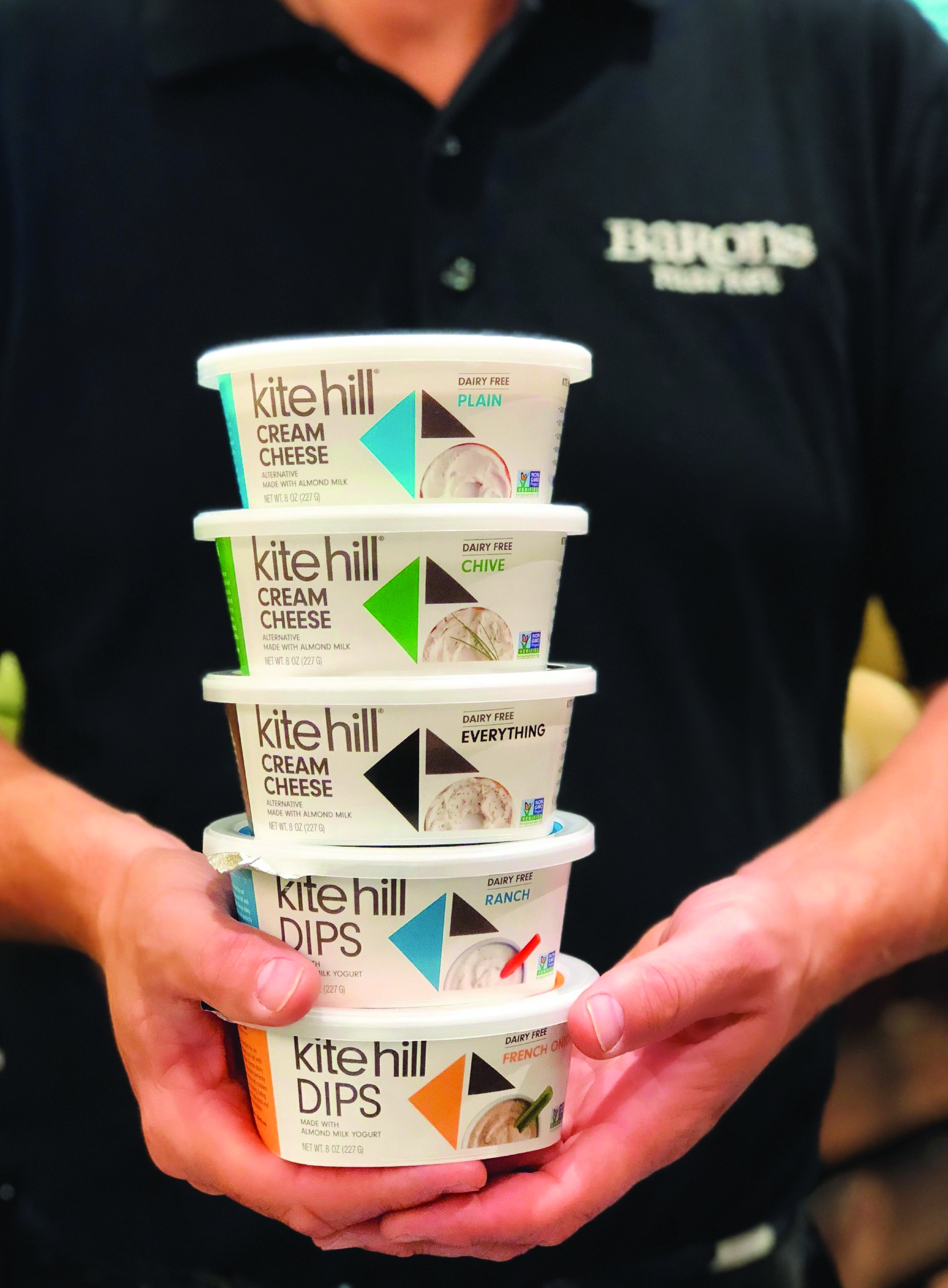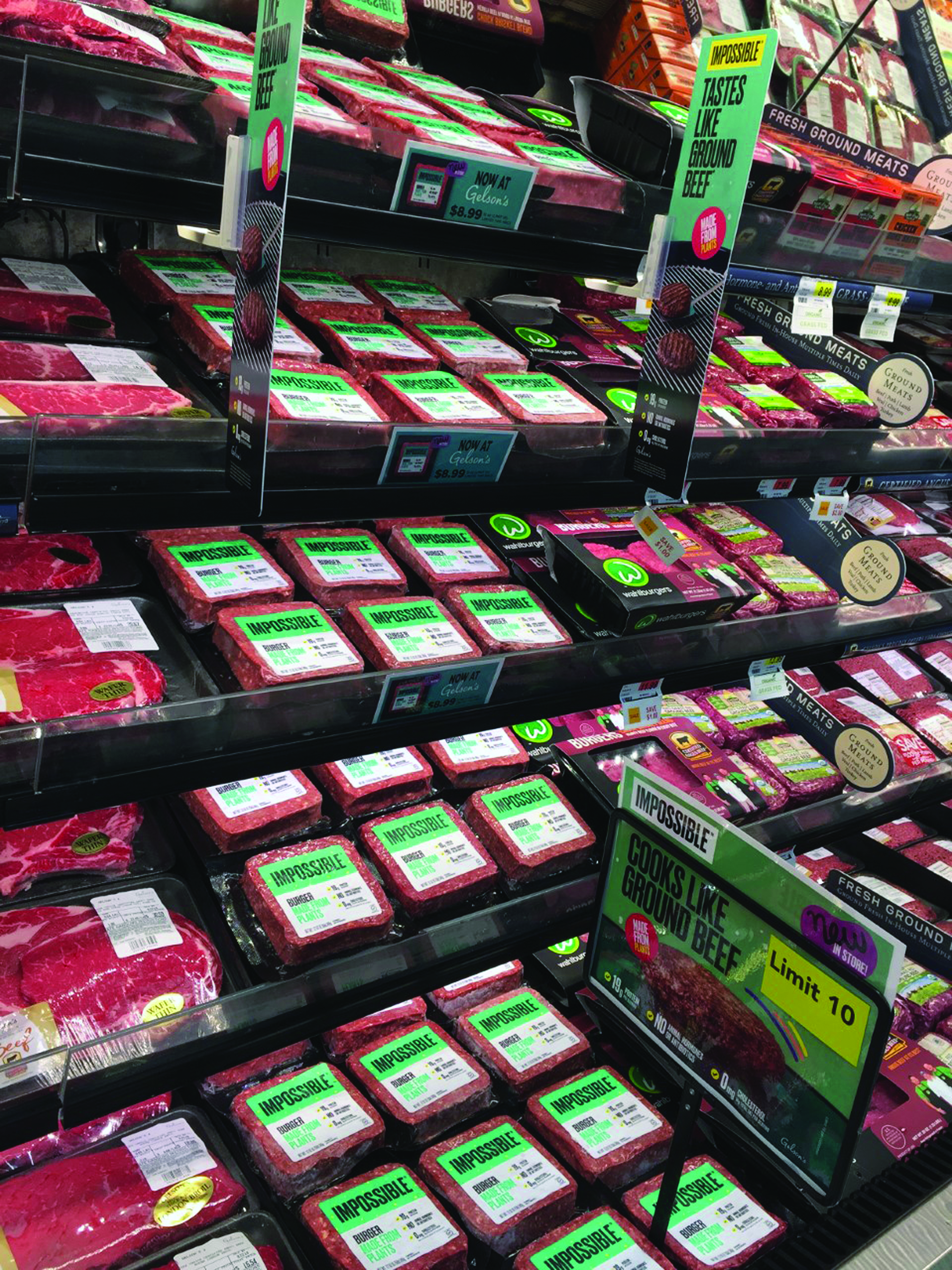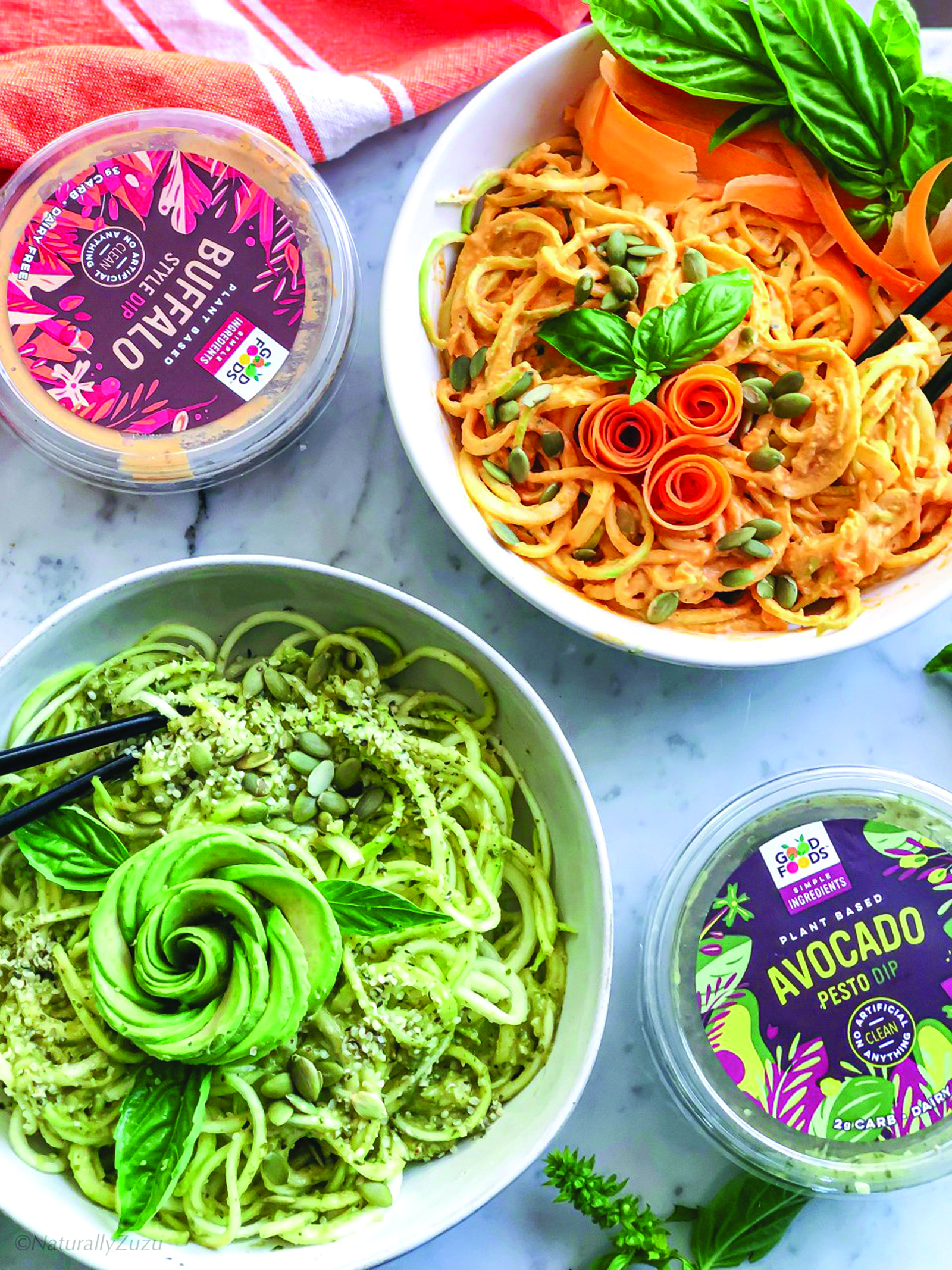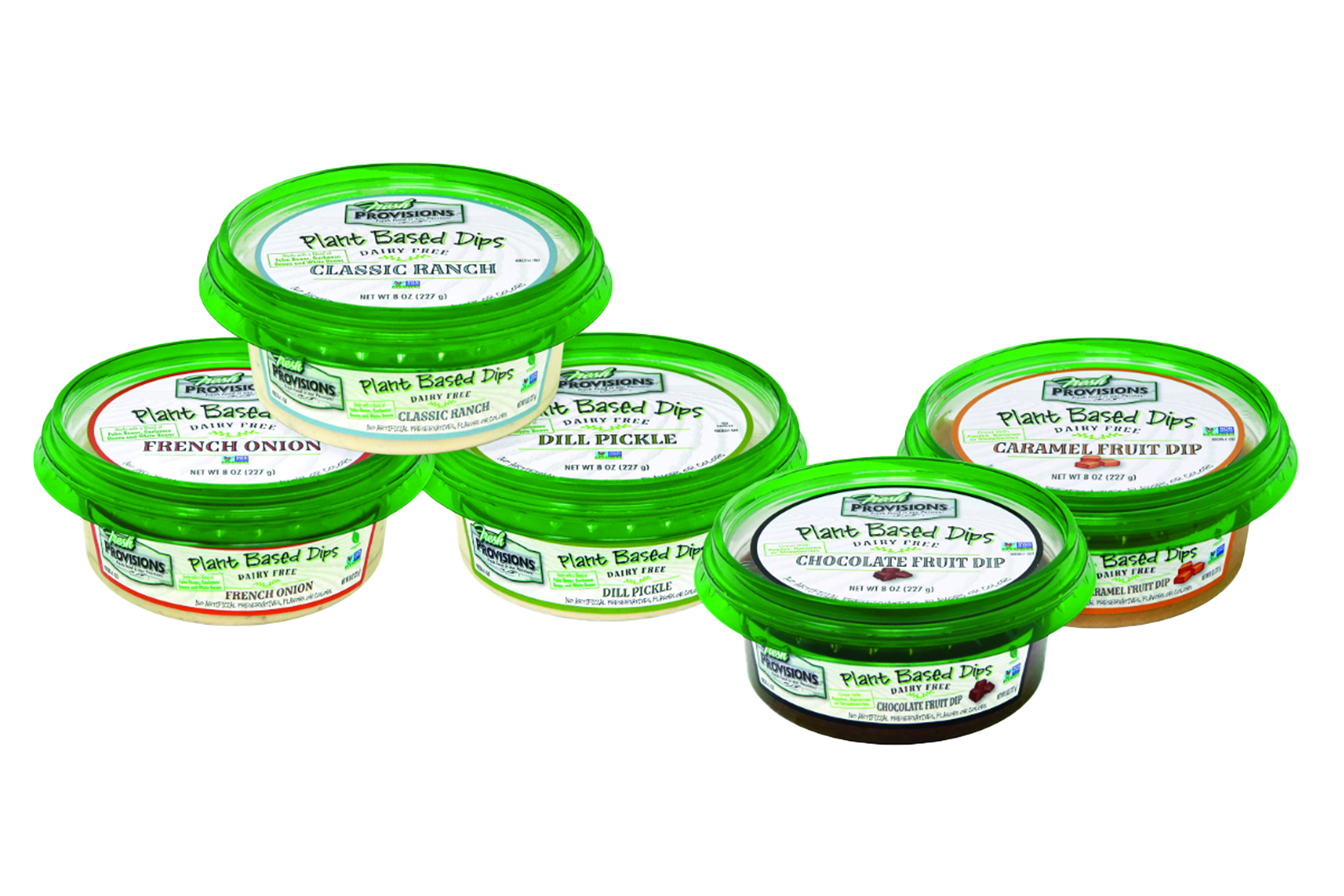Plant-based foods are hardly new.
For decades, food manufacturers have been looking for and finding ways to substitute plant products for traditional meat, dairy and other foods in a bid to appeal to consumers’ desire for what they perceive as more healthful and animal- and environment-friendly fare.
What is new is the explosion of plant-based in the grocery fresh perimeter, thanks to technological breakthroughs that make today’s plant-based burger patty and other favorites a far cry from many of the ho-hum products of a decade or two ago.
In fact, according to exclusive consumer research commissioned by Supermarket Perimeter, it could now be argued that plant-based has gone mainstream.
ABOUT THE STUDY:
Commissioned by Supermarket Perimeter, Cypress Research conducted a nationally representative online survey of US shoppers to identify supermarket shoppers’ plant-based meat alternative product preferences and purchasing habits. Supermarket Perimeter was not identified as the study sponsor during survey field work.
The survey topic was not initially disclosed to potential survey respondents, in order to obtain baseline data on the proportion of U.S. supermarket shoppers that purchase plant-based meat alternative products.
Survey fieldwork took place during the month of June 2020. Following were requirements for individuals to qualify for survey participation:
- A primary grocery shopper for the household
- Must have purchased plant-based meat alternatives during past 6 months
Survey quotas were also established in order to guarantee:
- Roughly equal representation by ages 18-34, 35-54, 55+ years
- Regional representation
- Responses were received from a nationally representative sample of 878 supermarket shoppers age 18 years and older that have purchased plant-based meat alternatives during the past six months. Respondents were equally representative of four US regions.
According to our research, nearly eight in ten (77%) grocery shoppers in the United States have purchased plant-based meat alternatives in the past six months. These range from veggie burgers to veggie beef, pork or chicken alternatives to prepared meals containing plant-based meat alternatives.
In another sign of its mainstream appeal, plant-based is hardly the sole domain of vegetarians and vegans. Forty percent of people who eat plant-based meat alternatives also eat meats and other animal proteins, and 30% classify themselves as flexitarians.
The sky’s the limit for plant-based, as suppliers and retailers alike attest.
“Consumers today are seeking and buying plant-based ingredients at record levels because of their growing awareness of the environmental and health consequences of eating meat,” said Rachel Soeharto, communications manager of Redwood City, Calif.-based Impossible Foods, makers of the Impossible Burger and other plant-based products sold in retail and foodservice channels. “Reducing the use of animals for food will liberate land and water, mitigate climate change and help make people healthier.”
“The plant-based category is the fastest growing segment in our entire store,” said Kyle Hetman, category manager for Encino, Calif.-based retailer Gelson’s. “And I don’t see that changing in the coming years, as growth will continue to outpace most other categories.”
Given the increase in at-home dining and growing interest in plant-based foods for health and budget reasons, another retailer, Los Angeles-based Smart & Final, is beginning to introduce more options throughout its stores to meet its customers' plant-based needs, said Daryl Zgodzay, the retailer’s vice president for meat, deli and bakery.
Some of those new items include the Sweet Earth Awesome Burger and Grounds, Sweet Earth Mindful Chik'n, and Sweet Earth Awesome Bacon Burger.
“We continue to monitor consumer demands and how these new items resonate with our customers, as we determine products to meet an increasing appetite for plant-based foods,” Zgodzay said.
The marketing manager for Moss Landing, Calif.-based Sweet Earth, Jesse Curtis, said the health is the main driver of consumers’ turn toward plant-based.
“Eighty-three percent of consumers are eating more plant-based foods due to health reasons,” Curtis said, citing Mintel statistics. “Other considerations include sustainability, ethics, affordability, religion and sensory preferences.”
In addition, Curtis pointed out that 41% of the general population are “meat reducers” – people looking for more regular, healthier options.
Social media and celebrity adoption have accelerated awareness of the plant-based trend, Curtis said, citing a recent MenuTrends study that gathered insights on penetration of plant-based foods in restaurants and found that there has been a 621% menu penetration growth in the vegan category.
And that trend also extends to retail.
“Plant-based food sales have grown five times faster than total food sales in the last year,” Curtis pointed out.
Forty percent of people who eat plant-based meat alternatives also eat meats and other animal proteins, and 30% classify themselves as flexitarians, according to our research.
Another 14% are vegetarians, 9% are vegans and 7% are pescatarians (eat seafood but not other animal proteins).
People eat plant-based foods for a number of reasons, but the overwhelming one is health. Seventy-two percent chose health, followed by compassion for animals/animal welfare and lower environmental in a tie for second (both with 45%).
Other significant reasons for choosing plant-based included weight management (38%), avoiding antibiotics and additives (36%), cancer and other disease reduction (36%) and reduce cholesterol and fat intake (35%).
Eighty-one percent of US shoppers have purchased plant-based meat alternatives, 68% milk alternatives, 64% prepared meals containing plant-based alternatives.
COVID’s impact
According to the Good Food Institute, plant-based meat sales in particular have grown by 38% from 2017-2019. And on average, shoppers spend $8.40 per trip on plant-based meat.
COVID has only accelerated demand for plant-based foods at retail, Curtis said. At certain times, access to plant-based alternatives has been invaluable. In the nine-week period ending May 2, for example, plant-based meal sales rose 264%, due largely to an industrywide meat shortage in April, according to Nielsen data.
New demand, new product
According to our research, about 3 in 10 shoppers report increased consumption of plant-based proteins as a result of COVID, and 89% say those increases will be permanent.
In Fall 2019, Sweet Earth introduced its Sweet Earth Awesome Burger and Grounds. The Awesome Burger is plant-based and satisfies cravings for the meaty, juicy taste of a traditional burger, while providing plant-based nutrition and goodness, Curtis said.

Awesome Grounds are perfect for recipes and give consumers greater flexibility to cook traditional meals and sides, such as meatballs and tacos, making it easier for anybody to eat less meat without compromising on flavor. The Awesome Burger and Grounds are both Non-GMO Project verified and made with pea protein.
The introduction of those products was followed by the rollout of Sweet Earth Mindful Chik’n, which Curtis said delivers the taste, texture and an “authentic chicken experience” without hormones, antibiotics or fats. Mindful Chik'n has 19 grams of protein and 6 grams of fiber and is ready for recipes — or to just heat and eat as is.
Most recently, in July, Sweet Earth introduced its Sweet Earth Awesome Bacon Burger, the first of its kind in retail and completely unique to the plant-based burger category, Curtis said.
Made with textured pea protein, natural hickory smoke flavor, fruit, and vegetable concentrate for color, the burger combines Sweet Earth’s much-loved Benevolent Bacon with the Awesome Burger to create a savory plant-based burger experience that contains 26 grams of protein.
“With the constant rise in plant-based foods, we are seeing the evolution of the meat aisle into the protein aisle,” Curtis said. “Most grocery carts today shop the perimeter. We, and plant-based brands at large, will have much more success if consumers can find our product next to what they’re looking to give up versus where yesterday’s ‘meat alternatives’ are shelved.”
Just like the dairy case today has a significant footprint with plant-based beverages, so, too, should the protein case, Curtis added.
For Sweet Earth, we continue to innovate in the plant-based meat category that spans from burgers, chik’n, and beyond to sausages and deli meats debuting down the line. We look forward to satisfying cravings of vegetarians and flexitarians alike - consumers open to finding a no-sacrifice way to clean up their diet.
Beyond health
Rachel Shemirani, senior vice president for San Diego-based Barons Market, doesn’t discount the enormous role health plays in consumers’ decision to add more plant-based foods into their lives.
But it helps a lot, she said, that plant-based foods taste better than they ever have and are much more accessible.
“It’s easier than ever to change from traditional burgers to a Beyond burger without sacrificing taste or quality,” Shemirani said. “Our customers are also aware of the environmental impact following a plant-based diet has.”
Barons’ plant-based product roster is growing “very quickly,” Shemirani said. The retailer used to feel that it had to bring in an organic option for all the traditional products it had. Now, it wants to bring in a plant-based option to all the products it carries.
That includes milk, yogurt, cheese, ice cream, eggs, baked goods, hot dogs, hamburgers — Barons has even found a vegan, plant-based tuna salad and egg salad that its customers really like. The company’s goal is to have plant-based options in all categories.
Beyond Meat has always been very popular among Barons customers, as have products from Miyokos Creamery (butter and cheeses) and Violife (cheeses). In addition, Café Spice has a few plant-based grab and go entrees that are excellent and have moved well at Barons stores, and the chain’s customers love Kite Hill plant-based dips and Divvie’s baked goods, Shemirani said.
“Brands are constantly working on creating really delicious plant-based products that are made with quality ingredients, so I think we’ll see better products overall. We think there will be more grab n’ go plant-based entrees too.”
Barons also has a lot of great plant-based products in its freezers. The company’s customers are stocking up on more frozen products due to COVID, Shemirani said — they want products that will last longer. Some of the top sellers at Barons include Oggi’s Pizza made with cauliflower crust, Beyond Meat and vegan cheese and Coolhaus non-dairy ice cream.
New technologies, new products
Gelson’s Hetman said that whether it’s “meat-free Mondays” or simply cutting back occasionally, plant-based foods have gone mainstream. And the number of people who identify as flexitarians, he said, also has greatly increased over the past few years.
“Chefs and food manufacturers are creating new dishes and products faster than ever before,” Hetman said. “With increased investments in the sector, new technologies have emerged, creating more appetizing items in a short amount of time. Vegans, flexitarians, and even carnivores have embraced these products and drive overall demand.”
And as more research is published on the benefits of a flexitarian diet, demand in the category will continue to increase, Hetman added. Most dietitians agree that incorporating one plant-based meal a day into your diet improves overall health.
Plant-based items have been on grocery shelves for decades, but in the past they were limited to traditional foods like tofu, veggie slices and veggie dogs, Hetman said. The evolution in center of plate choices—burgers, sausages, chicken, as well as total meal solutions—has greatly expanded shelf space for plant-based items.
To meet demand, Gelson’s stocks only the best plant-based products in milk, ice cream, cheese and meat available, Hetman said. The company employs innovative cross-merchandising and promotional strategies to further drive growth and emphasize its distinctive offerings.
One example: the retailer’s specialty cheese category manager has created a “plant-based cheese board” for Gelson’s customers, highlighting some of the unique ways to entertain the plant-based guest in every family.
“It’s quite remarkable how plant-based cheese has evolved to taste and feel just like traditional cheese,” Hetman said. “Same goes for ice cream — sometimes I can’t tell the difference.”
Gelson’s also recently ran an ad campaign to “build a better burger” by incorporating a Beyond Meat patty, Field Roast cheese, and Follow Your Heart Vegenaise, which was very successful, Hetman said. Additionally, the retailer’s instore chefs are integrating plant-based meatloaf and cooked, pre-packed “crumbles” into the daily menu in its kitchens.
The role of education
To spread the plant-based message even further, education is critical, Hetman said. Gelson’s is revamping its on-shelf callouts to better identify which items are plant-based in its stores. The company used the term vegan for many years, but more recently has recognized that it doesn’t resonate with today’s consumers, who are searching for a wider variety of plant-based options.
Gelson’s may not be the first place Californians think of when it comes to plant-based, but since the chain has broadened its base in new markets and channels, it’s now a top choice for plant-based in the Southern California market, Hetman said.
In 2019 the company launched the Impossible Burger. Gelson’s was the first retailer in the world to carry the supplier’s retail pack.
“It was great exposure for us since we’re a regional chain,” he said. “Impossible Burger is still one of the top selling packaged items in the store from a dollar perspective.”
Other top plant-based sellers for Gelson’s include nut and oat milk, cashew and coconut milk ice cream, nut-based cheese and dips and plant-based frozen meals. And Hetman said the retailer is adding new items all the time.
Hetman has no doubt that there will be greater investment in the plant-based category. How that looks at the retail level is up to the customer, he said, and how certain retailers merchandise those products will be interesting to see.
“Some believe plant-based meats belong in the meat department, some argue for a large dedicated plant-based section in the store, much like dairy is today. I believe it will depend upon the individual retailer and their customers’ shopping habits. The overall goal is to cater to your customers’ needs in the best way possible.”
Top brands
MorningStar, Boca Burger, Beyond Meat, Gardein and Impossible are the top four plant-based meat alternative brands, consumers say.
Two-thirds of those surveyed have purchased MorningStar, 64% Boca Burger, 51% Beyond Meat, 43% Gardein and 36% Impossible.
Brand awareness for the top brands is strong. Just 18% of US consumers said they hadn’t heard of MorningStar, followed by Boca Burger (21%) and Beyond Meat (23%).
And many of those brands are being purchased and consumed a lot more often. A third of shoppers said they eat plant-based meat alternatives several times a week; 12% do so daily. Eight in ten eat plant-based proteins for dinner, nearly two-thirds at lunch and one-third for breakfast. Seventeen percent eat them as a snack.
One of those top brands, Impossible, is now sold in more than 9,000 grocery stores nationwide, Soeharto said.
Since March, the company has increased its retail footprint more than 60-fold, including launching at Walmart, Trader Joes, Publix, Kroger, Safeway, Smith’s, Ralphs, Fred Meyer, Albertsons, Jewel-Osco, Pavilions, Vons, H-E-B, Central Market and other stores.
On the foodservice side, in June Impossible launched its Impossible Sausage Made From Plants at more than 22,000 restaurants nationwide. Burger King introduced the Impossible Croissan’wich at its 7,500 U.S. locations, and Starbucks announced its own breakfast sandwich made with Impossible Sausage at its 15,000 U.S. locations.
The Impossible Burger made its grocery store debut in September 2019 at select retailers including Gelson’s, Wegmans, and Fairway. In its first week, it rocketed to the No. 1 item sold on the East and West coasts, outselling all ground beef from cows at many stores, Soeharto said.
“Impossible Foods is setting new sales and production records month over month as more grocery stores and restaurants offer Impossible Foods’ award-winning, plant-based products,” Soeharto said. “Some of the latest retailers offering Impossible Burger in their stores include Walmart, Trader Joe’s, Publix, and more will be announced soon.”
Currently, Impossible offers one SKU at retail: a 12-ounce package of Impossible Burger. Soeharto said the company will definitely be expanding its product portfolio in retail.
Impossible Foods products are designed for meat lovers so they don’t have to compromise on taste, nutrition or sustainability. About 95% of people who eat Impossible Burger eat animal-derived products on a regular basis.
Dips, sauces, cheeses and beyond
Nearly half of consumers we surveyed (46%) have purchased plant-based dips and sauces. Another 42% have bought plant-based cheese alternatives.
Pleasant Prairie, Wis.-based Good Foods, makers of plant-based dips and other products, is constantly innovating in the category, thanks to soaring growth in demand, said Mandy Bottomlee, the company’s director of content marketing.

“Plant-based products are not only being sought after by core vegan or vegetarian consumers, but by shoppers aspiring to have a healthier diet or following a flexitarian lifestyle,” Bottomlee said. “Personal belief-based trends, along with the plant-based positioning of being better for you and better for the environment, as well as the interest in animal welfare are all driving demand.”
Despite the plant-based category being a smaller segment in conventional grocery and mass compared to natural, Good Foods is still seeing significant growth of over 400% vs last year, Bottomlee said.
There’s been an evolution of plant-based foods, she added, in terms of how much the market has improved the taste, texture and variety. Additionally, the access and influence of global diets is also shaping the category — flavors like romesco, pesto, and Good Foods’ plant based tzatziki.
“Demand is also reflected in the sheer number of new plant based products being offered and the convergence of plant based items sharing shelf space with historically animal-based products,” Bottomlee said. “The demand has grown so much that shoppers do not have to seek a smaller dedicated section of the store, because plant-based items are now integrated into conventional sets.
Good Foods’ dips not only taste good, she said. They also have no added sugars, preservatives or artificial ingredients and are gluten and dairy free. Good Foods dips are “produce forward,” with cauliflower as the first ingredient, which also lends to the nutritional values that shoppers find appealing, Bottomlee said.
Good Foods is supporting its plant-based dips at its retail partners’ stores with integrated marketing campaigns, promotional activities, and increased consumer engagement strategies.
The company’s top selling items is its Plant Based Queso, followed by Buffalo and Tzatziki.
Good Foods is continuing to develop new flavorful line extensions, while also expanding to new size formats to support different consumption needs, Bottomlee added.
“We've extended our Queso and Buffalo to larger sizes for club stores and are launching single serve versions as well.”
Delphos, Ohio-based Lakeview Farms LLC is venturing further into plant-based with its new line of dips.
Lakeview was already familiar with plant-based with its refrigerated salsa and hummus products, said Greg Klein, the company’s chief marketing officer. Its new Fresh Provisions line of plant-based savory and sweet dips made its debut on June 1 and began hitting stores in the first half of August.
“Within all of our categories — dips, salsa, hummus, desserts — we feel there are applications for plant-based, as acceptance continues to grow,” Klein said.

Dips sold in supermarket delis are the company’s first salvo. Lakeview’s dips, which come in 8-ounce containers, are made with a combination of fava, white and garbanzo beans, which differentiates them from other plant-based dips that rely on nuts or vegetables.
Another differentiator: Lakeside wanted to make its products easily accessible, so it chose familiar consumer favorites. Fresh Provisions come in Classic Ranch, Dill Pickle, French Onion, Chocolate and Caramel.
“Other dips are kind of esoteric,” Klein said. “We wanted to go more mainstream.”
Several retailers are already on board to sell the new dips, and more are coming online each week, Klein said.
A number of factors are propelling plant-based growth, Klein said.
“Non-dairy for sure is a big part of it. There’s also the sustainability factor or the perceived sustainability factor. And generationally, younger families and individuals are more open to trying non-traditional and innovative products.”
In the end, though, it still comes down to taste, he said. Many of today’s plant-based products simply taste better than their forerunners.
This story was featured in the September edition of Supermarket Perimeter. Click here to view the whole issue.

